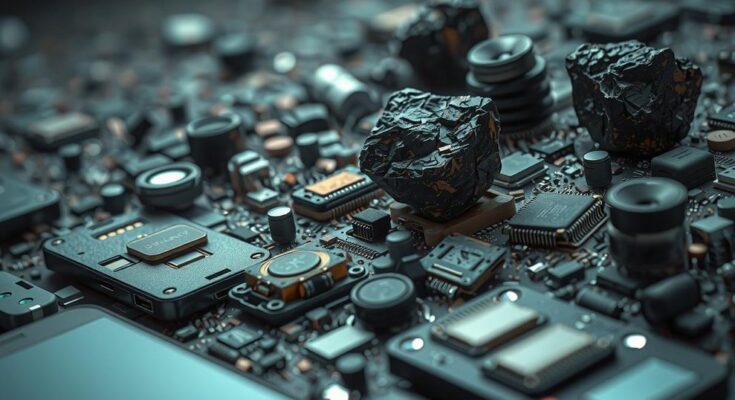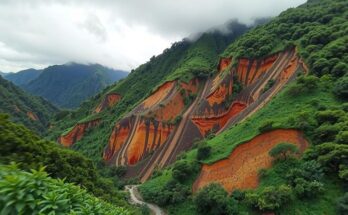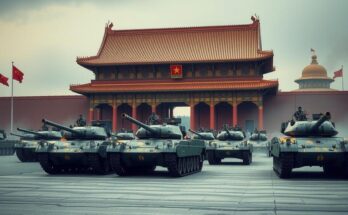The conflict in the Democratic Republic of Congo is fueled by the lucrative coltan trade, primarily controlled by the M23 rebel group, which taxes and monopolizes mining operations. Despite international legislation aimed at preventing conflict minerals from entering the global supply chain, challenges such as corruption and informal mining practices persist. The situation is exacerbated by transport routes to Rwanda, where uncertified coltan complicates efforts to ensure ethical sourcing in electronics.
The conflict in the Democratic Republic of Congo (DRC) is deeply intertwined with the supply of tantalum, a rare metal found in mobile phones. This tantalum, essential for smartphone functionality, primarily originates from mineral-rich areas in eastern DRC. The M23 rebel group currently controls significant parts of the region, including key coltan mining sites, and is actively engaged in the illegal taxation and monopolization of this mineral.
As the M23 rebels continue their offensive, notably with their recent assault on Goma, the city has become a critical hub for the mining industry. The rebellion, which began as a movement to protect a threatened ethnic group, has shifted focus towards the lucrative control of mining operations to sustain its activities. This has raised concerns regarding the extraction practices, as thousands of individuals operate in hazardous conditions, contributing to an unregulated and informal mining system.
Upon gaining control of Rubaya, an area pivotal to coltan production, the M23 implemented a system of regulations, demanding fees from miners and traders to operate. The revenue generated, estimated at $800,000 per month from coltan taxes, is likely utilized to further fund the rebel activities. Moreover, questions arise concerning the integration of conflict minerals into the global supply chain, specifically how those mined in M23-held territories reach international markets.
Certification schemes such as the Innovative Tin Supply Chain Initiative (Itsci) exist to prevent conflict minerals from entering global supply chains; however, they have faced significant criticism. Experts indicate challenges related to monitoring and potential corruption, which undermines the effectiveness of these initiatives. Following the M23’s takeover of Rubaya, Itsci suspended its operations, revealing the limitations of certification processes in conflict zones.
The transport of coltan to Rwanda complicates the issue further, where uncertified minerals are often mixed with legitimate sources, tainting supply chains. This illicit trade has been facilitated by existing routes from the M23-controlled areas to Rwanda, evidencing a cycle of profit deriving from instability. Recent reports indicate a surge in coltan exports from Rwanda, suggesting that a substantial portion originates from eastern DRC rather than domestic mines.
In response to these dire circumstances, the Congolese government has taken action by filing legal complaints against major tech companies, including Apple, for their alleged use of conflict minerals. Apple has asserted that it ceased sourcing tantalum from the DRC and Rwanda due to the ongoing conflict and certification difficulties, unlike some competitors. This situation underscores the perpetual risk of conflict minerals infiltrating the smartphone supply chain amid worsening conditions in DRC.
The Democratic Republic of Congo is rich in mineral resources, particularly coltan, which contains tantalum, essential for mobile phone technology. The M23 rebel group has leveraged its control over these resources to sustain its operations through taxation and monopolization of mining activities. This situation is compounded by the informal nature of mining in the nation and the challenges posed by international certification processes aimed at preventing the trade of conflict minerals. The conflict has raised pressing concerns about human rights violations, as many local miners work in unsafe conditions, often under the threat of violence from armed groups. Moreover, the complexities of the regional supply chain involve neighboring countries such as Rwanda, highlighting difficulties in ensuring ethical sourcing of minerals used in consumer electronics. Legislation such as the Dodd-Frank Act and related EU laws has sought to regulate this trade by promoting transparency. However, the persistent issues of corruption, lack of oversight, and economic interests of neighboring states pose significant barriers to achieving these goals, as arms and mineral trades become entangled in the escalating violence in the region.
The intricate connections between conflict in the Democratic Republic of Congo and the global supply of conflict minerals like tantalum highlight significant ethical concerns regarding smartphone production. As the M23 rebel group capitalizes on these resources, the ongoing violence raises questions about corporate responsibility and the effectiveness of international regulations. Despite efforts to ensure ethical sourcing, the complexities of mining operations and the central role of corruption underscore a dire need for comprehensive solutions to address these issues effectively.
Original Source: www.bbc.com




